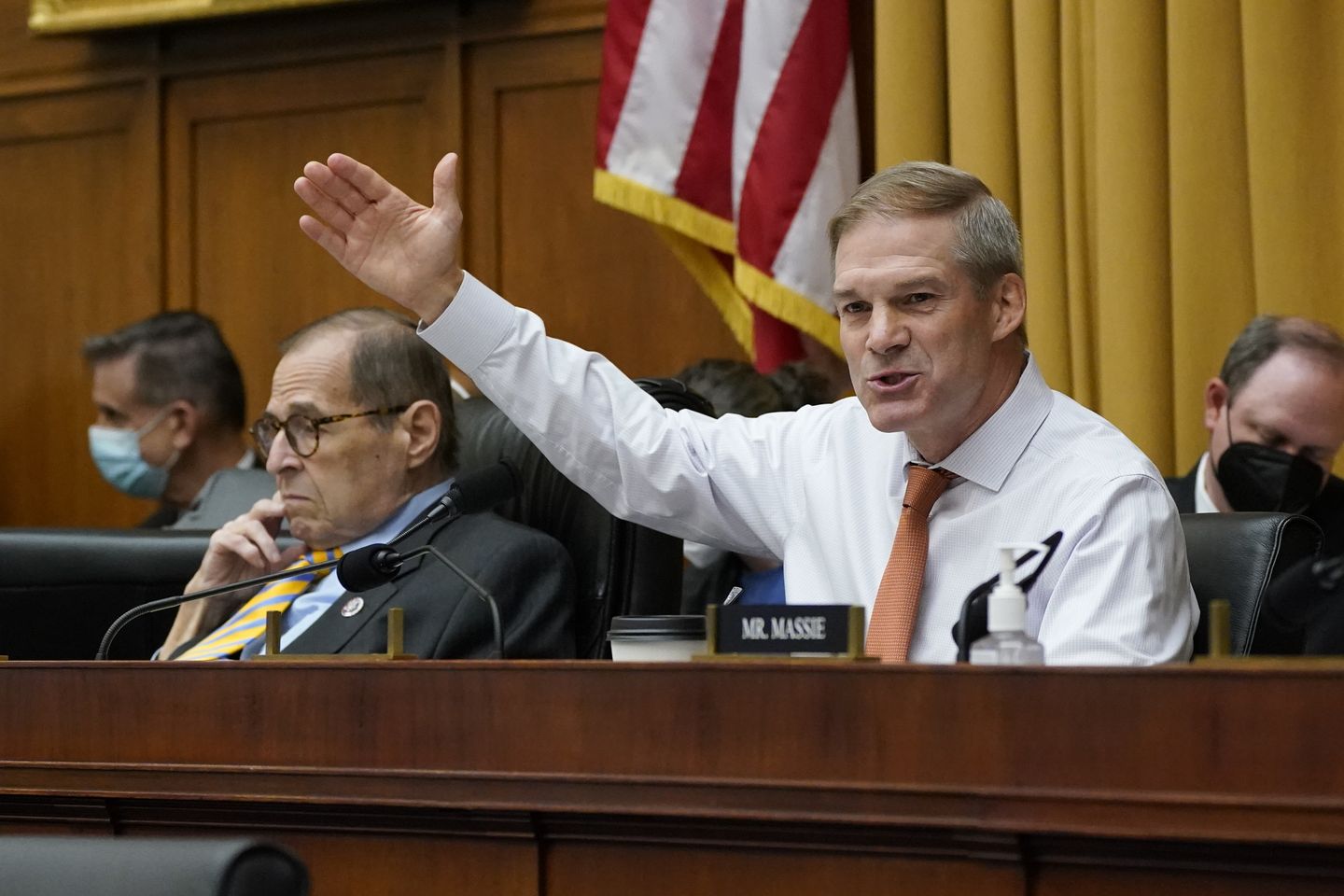

House Republicans, appalled by FBI misconduct and politicized investigations that have been detailed by a flood of whistleblowers, are weighing a range of probes and legislative fixes for the Department of Justice.
The lawmakers have begun revealing those plans that will spring into action if, as expected, the GOP wins a House majority in the Nov. 8 elections.
Judiciary Committee Republicans are kicking around various ideas for structuring investigations and drafting legislation to put a check on the FBI and the Justice Department. These formative plans include:
• Moving Justice Department supervision of the FBI out of Washington;
• Probing the FBI and DOJ with special committees such as ones modeled after Congress’s probes of U.S. intelligence agencies in the 1970s;
• Adding muscle to Congress’ referrals to the DOJ for criminal investigations;
• Requiring FBI, ATF and other federal law enforcement agents to wear body cams during raids.
The Justice Department and FBI did not immediately respond to requests for comment.
Rep. Dan Bishop of North Carolina told The Washington Times in an interview on SiriusXM Patriot that he is working on legislation that would de-centralize the DOJ’s oversight power from Washington.
“The Department of Justice’s supervising of the FBI ought to be done out in the country by United States Attorney’s Offices, rather than having all key decisions focus where politics can Shanghai them here in Washington,” the congressman said.
Mr. Bishop said the more than two dozen FBI whistleblowers recently come forward to Congress because they think the agency’s mission was been distorted, often by politics. “That sort of dynamics can happen when all power is essentially sucked up into one central decision-making vortex,” he said.
Rep. Jim Jordan of Ohio, the top Republican on the Judiciary Committee who will likely become chairman in a GOP-run House, said the committee will pursue robust investigations of the FBI and DOJ, but other types of investigatory committees could be in the works.
When recently pressed by Fox News host Mark Levin on whether Republicans would follow House Speaker Nancy Pelosi’s model of handpicking all members of the Jan. 6 committee, Mr. Jordan said he was looking for the “most effective” options.
“Whether that is a select committee, whether that is a special subcommittee of Judiciary, whether that’s a Church-type committee,” he said. “We’re trying to figure out what is exactly the best way.”
The Church committee, named after Sen. Frank Church of Idaho, conducted a series of investigations in 1975 into the U.S. intelligence community, including the CIA, FBI and IRS.
Judiciary Committee Republicans have taken a particular interest in FBI whistleblower reports related to the FBI’s targeting of parents who protested at local school boards and conservative political activists, including those involved in the Jan. 6 demonstration that turned into a riot.
“How much is the FBI and the Department of Justice targeting citizens with respect to Jan. 6?” said Rep. Chip Roy, a Texas Republican on the Judiciary Committee. He said the committee will find out more bout those who “exercised their First Amendment rights, and then suddenly, they’re being brought up on some sort of parading or trespassing charges and didn’t engage in any physical harm to anybody.”
Another Judiciary Committee Republican, Rep. Darrell Issa of California, told The Times that he is drafting legislation that will give Congress more muscle in making criminal referrals to the DOJ.
Mr. Issa has ample experience on that front. He led the Oversight and Reform Committee in 2012 when Attorney General Eric Holder was held in contempt for not cooperating with the panel’s investigation of the Obama administration’s Fast and Furious gun-tracking operation, which went awry and put more than a thousand firearms in the hands of Mexican drug cartels.
He also led Congress’ frustrated effort to hold IRS official Lois Lerner accountable for the IRS targeting of conservative groups.
“We referred Lois Lerner criminally. We referred Eric Holder criminally, and it was thwarted. You can’t have attorneys general … simply look at us and say, ‘Even though the law says you can do it, we’re not going to honor it,’” said Mr. Isaa, who vowed to beef up that congressional power.
“We’re going to have to strengthen it,” he said.
Another measure several Republicans on the committee want is requiring federal law enforcement agents to wear body cameras during raids and digitally record all interviews.
“I prosecuted with the FBI for 15 years as a federal prosecutor, and it always came up because even when they were interviewing in custody, they wouldn’t have a camera in the room,” said Rep. Ken Buck, Colorado Republican. “Every time there was a cross-examination of an FBI agent, [the defense attorney] would ask, ‘Well, why didn’t you record this? Why did you just take notes and then destroy the notes?’ And so I think it is time.”
